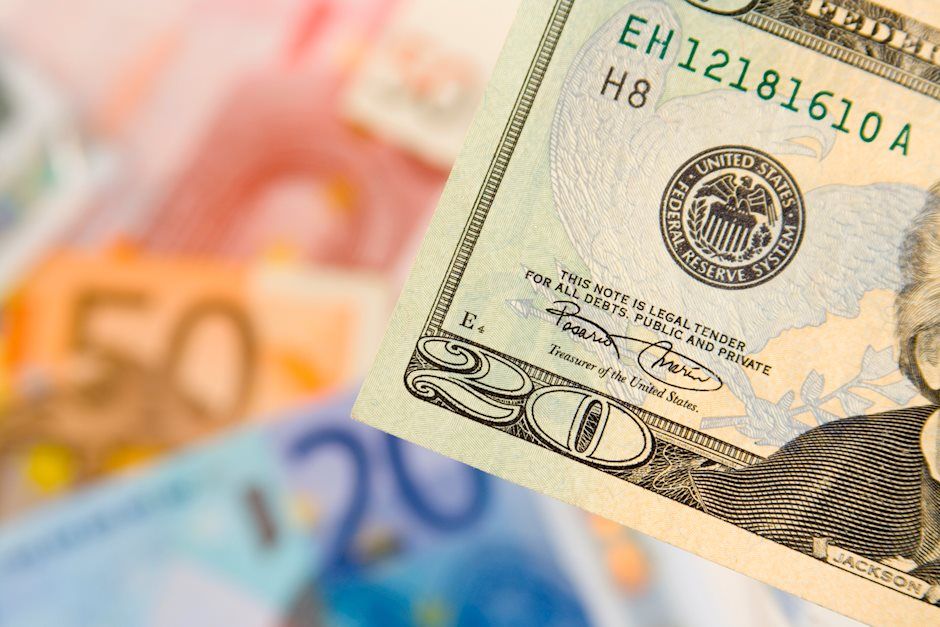US Dollar feels the Trump effect
- US Dollar feels the Trump effect
- Sterling remains stable
- Chinese exports drop, inflation rises

This week, the world has been firmly focused on the US Presidential Election. From analysing the key issues and implications in the run up to the election; to predicting the result of the election itself; to assessing possible broader effects on world currencies, global economic and political policy following either a Clinton or Trump victory. All of this means continued uncertainty and considerable volatility in global markets, so we could be in for an interesting ride, particularly if the immediate after effects of the UK EU Referendum are anything to go by. Now that Trump has won the election race, initial knee-jerk reaction responses from markets have calmed down, but this could be the calm before the storm…
US Dollar feels the Trump effect
US stock markets plummeted initially (The Dow Jones Futures fell 800 points at one stage) but recovered overnight. US Dollar sellers sought refuge during voting in the ostensibly safe havens of the Yen, gold and even the Euro, although the US Dollar has not been as affected as much as was initially anticipated.
Following this recovery, markets now think there is a strong chance of a Federal Reserve interest rate hike in December. While the initial furore that surrounded the election result may have muddied the waters somewhat, a survey by Reuters showed that 85 percent of respondents expected the interest rate raise to go ahead in December as had been widely anticipated, regardless of economic events following the presidential election. The uncertainty over which, if any, of Trump’s policies will actually be implemented and the ways in which that could happen will continue to create nervous currency fluctuations and, as always, that creates opportunities for everyone to use automated market orders to capitalise on this spikes and troughs.
Euro feeling pressure from US but not too concerned with European data
In addition to the speculation and uncertainty around the US election, some interesting data came from Germany this week; although with everything else that’s going on, they didn’t make such an impact on markets as one might usually expect.
German industrial production figures showed a slowdown in October and yet this had minimal impact on the strength of the Euro. It did though raise concerns around exports, particularly in Germany’s capacity as the largest Eurozone economy. A slowing of demand from international markets is likely to have a significant effect and that also goes for Italy, France and Spain; countries which also have good export success.
Sterling remains stable
Sterling did not move significantly, even after EU Exit Minister, David Davis, reaffirmed his stance that Article 50 will be triggered by April 2017, and the UK government expressed confidence about winning their Supreme Court appeal. The UK currency is not doing too badly compared with recent rates, and is not only holding on to its recent strength but pushed ahead again after the National Institute for Economic and Social Research (NIESR) estimated that UK inflation could reach 4% next year. That removes any chance of another rate cut and brings the BOE into a focus on rate hikes. They have said they would ‘look past’ inflation on its own but. If it does hit twice their target, they’ll have to look straight at it and interest rates may well be on the rise. However, shock waves from the US election will also have an impact and further ramifications from the Article 50 standoff will affect the Pound.
Chinese exports drop, inflation rises
Chinese export figures dropped by a remarkable 7.3% this week, with capital outflow figures bringing China’s foreign exchange reserves to their lowest level since January 2016. This was a cause for concern regarding Chinese protection of their reserves and as a result, the Yuan fell the lowest rate for almost six years. This currency weakness is a boost for Chinese exports, but not such great news for the Chinese economy and its global trade partnerships.
Figures also released this week showed that Chinese inflation grew at the fastest rate in six months throughout October, to 2.1 percent, strengthening the Yuan and also offering a lift for both the Australian and New Zealand Dollars, given the importance of the Chinese export market to the fortunes of these currencies.
Emerging markets feel the strain of US Dollar strength
Emerging market currencies are still feeling the strain of US Dollar strength following the US Presidential Election. Post-election currency market volatility has now taken its toll on the Brazilian Real as well as the Mexican Peso, as the Brazilian currency fell to its lowest level against the US Dollar since June. The US Dollar has shot up more than six percent against the Brazilian Real since the election. In light of the current currency volatility, the Brazilian central bank has suspended their planned currency swaps contract auction, which was designed to prevent further strengthening of the Real.
Commentary from the Halo Financial Team. Need a trusted FX broker? Register today for more insights and strategies.
Author

David Johnson
Halo Financial
Trained as a Technical Analyst and hold MSTA and CFTe accreditation, David Johnson has been active within the foreign exchange market since 1994 and established Halo Financial with 3 fellow Directors in 2004.

















